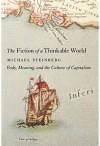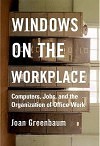Marxism
I should like to begin by saying something about the intellectual climate in which Marx’s thought was reared; since a doctrine generally appears more clearly delineated when it is contrasted with other contemporary doctrines or with ideas in critique of which the doctrine was born | more…

Bukharin’s Philosophical Arabesques was written while he was imprisoned in the Lubyanka Prison in Moscow, facing a trial on charges of treason and the likelihood of execution. After the death of Lenin, Bukharin co-operated with Stalin for a time. Once Stalin’s supremacy was assured he began eliminating all potential rivals. For Bukharin, the process was to end with his confession before the Soviet court, facing the threat that his young family would be killed along with him if he did not.
While awaiting his death, Bukharin wrote prolifically. He considered Philosophical Arabesques as the most important of his prison writings. In its pages, he covers the
From the late 1960s into the 1980s there was a vibrant women’s movement in the United States. Culturally influential and politically powerful, on its liberal side this movement included national organizations and campaigns for reproductive rights, the Equal Rights Amendment (ERA), and other reforms. On its radical side it included women’s liberation and consciousness raising groups, as well as cultural and grassroots projects. The women’s movement was also made up of innumerable caucuses and organizing projects in the professions, unions, government bureaucracies, and other institutions. The movement brought about major changes in the lives of many women, and also in everyday life in the United States. It opened to women professions and blue-collar jobs that previously had been reserved for men. It transformed the portrayal of women by the media. It introduced the demand for women’s equality into politics, organized religion, sports, and innumerable other arenas and institutions, and as a result the gender balance of participation and leadership began to change. By framing inequality and oppression in family and personal relations as a political question, the women’s movement opened up public discussion of issues previously seen as private, and therefore beyond public scrutiny. The women’s movement changed the way we talk, and the way we think. As a result, arguably most young women now believe that their options are or at least should be as open as men’s | more…

In the culture of the modern West, we see ourselves as thinking subjects, defined by our conscious thought, autonomous and separate from each other and the world we survey. Current research in neurology and cognitive science shows that this picture is false. We think with our bodies, and in interaction with others, and our thought is never completed. The Fiction of a Thinkable World is a wide-ranging exploration of the meaning of this insight for our understanding of history, ethics, and politics. | more…
My friend Daniel Singer, in a piece he wrote for The Nation six years ago, said that he often felt like a deserter from the army of the dead because he escaped the Nazi roundup of Jews in Paris by walking across France to Switzerland | more…
In the United States, the creation of wealth is often presented as a process that benefits everyone within the society. A common shibboleth, made famous during the Kennedy administration, is that “a rising tide lifts all boats.” In June 2000, the Conference Board, an organization devoted to the promotion of global business and one of the leading private centers for the analysis of economic statistics, released a report actually entitled Does a Rising Tide Lift All Boats? The report concludes: “Unfortunately, the answer to date is ‘no ’” | more…
Some wags claim that it is the conservatives who fear socialism, while the radicals believe that capitalism will last forever. Conservatives, they say, fear widespread popular discontent, while radicals abandon hope of a revolutionary overthrow of capitalism. An exaggeration? Of course. Even so, this witticism is not inappropriate. Many on the left have indeed retreated from class and a vision of a democratic, egalitarian socialism. The important social issues of our day—race, gender, and the environment—more often than not are divorced from the role of class structure. The rule of the capitalist class and the class struggle are shoved to the back burner. Whether consciously or not, the implicit assumption underlying the retreat from class is that capitalism will somehow or other go on and on as it creates miraculous new technology. Best then to stick to making those adjustments in social conditions that the system will presumably allow | more…

When health policy is looked at from the point of view of which issues involve a direct confrontation of fundamental, ruling-class interest, which ones involve simply relative benefits to a class, and which are relatively neutral, we can predict which kinds of measures are possible. This highlights the lie in the notion that society is trying to improve health for everybody. | more…
It is not uncommon within social science today to acknowledge that Karl Marx was one of the first analysts of globalization. But what is usually forgotten, even by those who make this acknowledgment, is that Marx was also one of the first strategists of working-class internationalism, designed to respond to capitalist globalization. The two major elements governing such internationalism, in his analysis, were the critique of international exploitation and the development of a working-class movement that was both national and international in its organization. A scrutiny of Marx’s views at the time of the First International offers useful insights into the struggle to forge a new internationalism in our own day. | more…
On keeping the MR flag flying: Between us there are 177 years of life. The issue of continuity has plagued us for some time and we have from time to time explored and experimented with ways of maintaining the unique tradition of MR as an independent, nonsectarian advocate for and educator on socialism and Marxism. With that in mind, we have asked John B. Foster and Robert W. McChesney to assume the responsibility of being Acting Editors. We are pleased that they have agreed. In addition to their direct editorial responsibilities, John and Bob will participate in the development of a more permanent editorial board as well as a battery of contributing editors, not only academics but also labor and social movement activists. We expect to continue to guide the magazine as long as possible | more…
Marx’s ideas on alienation, which had been ignored for a long time, have become quite fashionable in recent years. Frequently they are even overemphasized at the expense of other concepts of Marx, in particular, his economic concepts. This trend is sometimes due to the attempt to make Marx respectable and to win new supporters for him, especially in intellectual circles which show some interest in socialism but are still reluctant to accept the Marxian analysis of our society. These people are often told: Don’t worry about the later Marx, who wrote the Critique of Political Economy and Capital, and who was so tactless as to develop the theory of exploitation | more…

In this eye-opening book, Joan Greenbaum tells the story of changes in management policies, work organization, and the design of office information systems from the 1950s to the present. Windows on the Workplace takes us behind the news stories of the highly efficient, high-tech workplace and shows us the ways in which technologies—computers, mobile phones, the internet—have been adapted by management to reshape the way work is done. In tracing the introduction of new technologies, Greenbaum reveals how organizations use them to benefit from both increased profits and more intense control over the workforce. | more…



